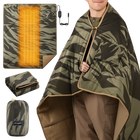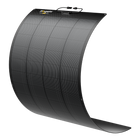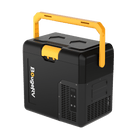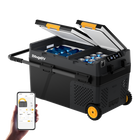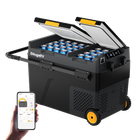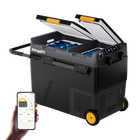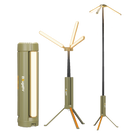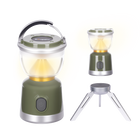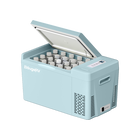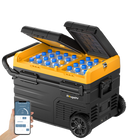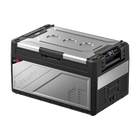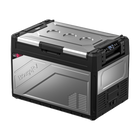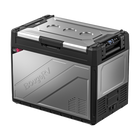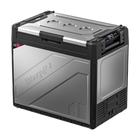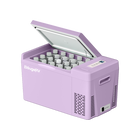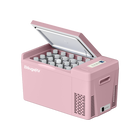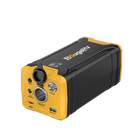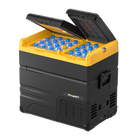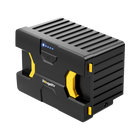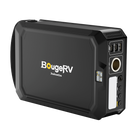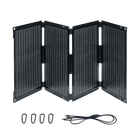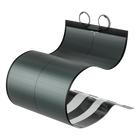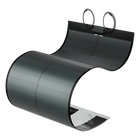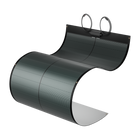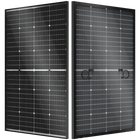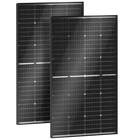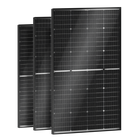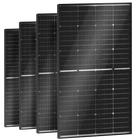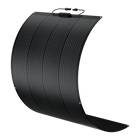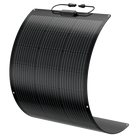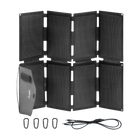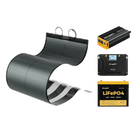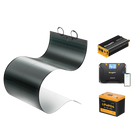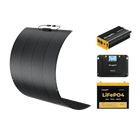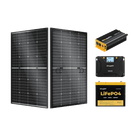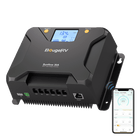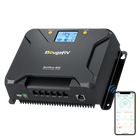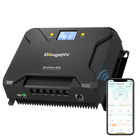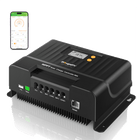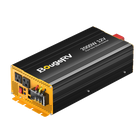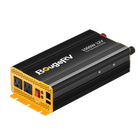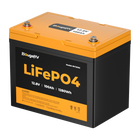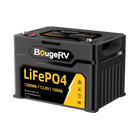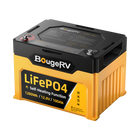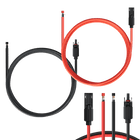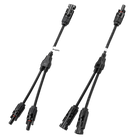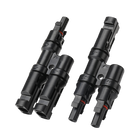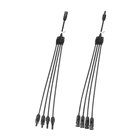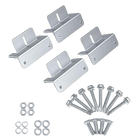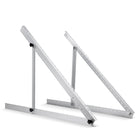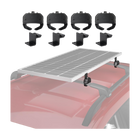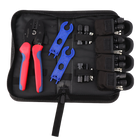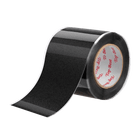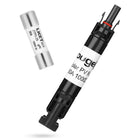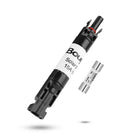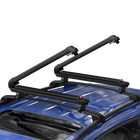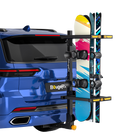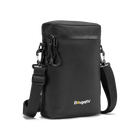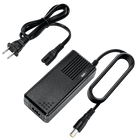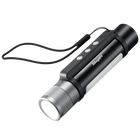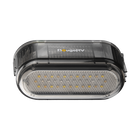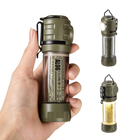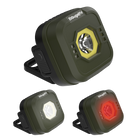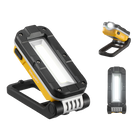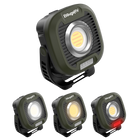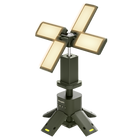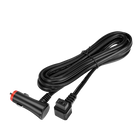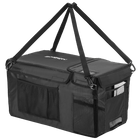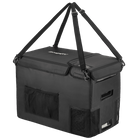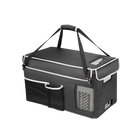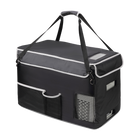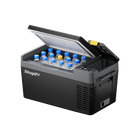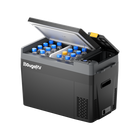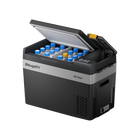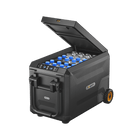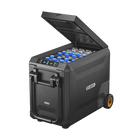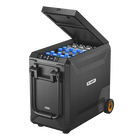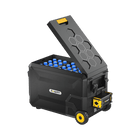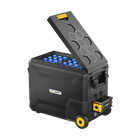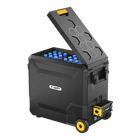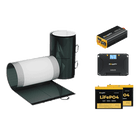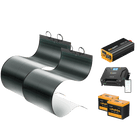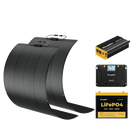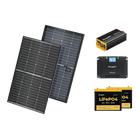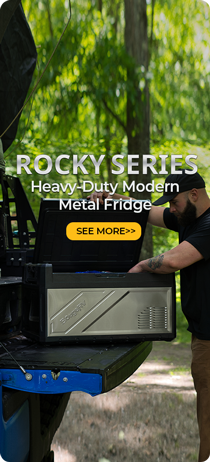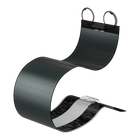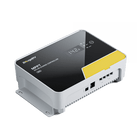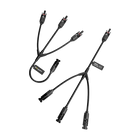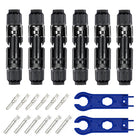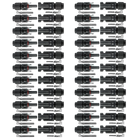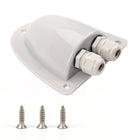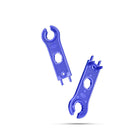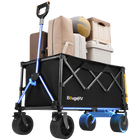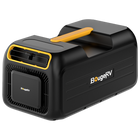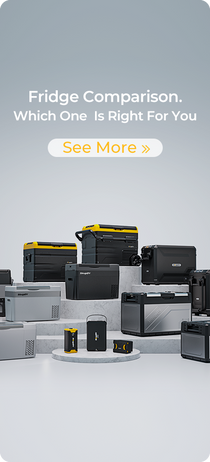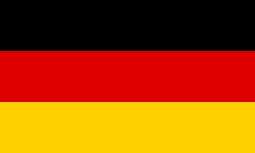Can Solar Panels Be Curved?


Solar panels are one of the most popular and effective ways to harness renewable energy from the sun. They are widely used in outdoor camping, homes, businesses, and even spacecraft to generate electricity and reduce carbon emissions. But have you ever wondered if solar panels can be curved?
In this blog post, we will explore the concept of curved solar panels, their advantages and disadvantages, some examples of their applications, and more
How Do Solar Panels Work?
Before we dive into the topic of curved solar panels, let's first understand how solar panels work in general. Solar panels are composed of many individual solar cells that transform sunlight into direct current (DC) electricity. The cells are usually made of silicon, a semiconductor material that can create an electric field when exposed to light.
The cells are arranged in a flat panel mounted on a frame and connected to an inverter. The inverter then converts the DC electricity into AC electricity that can be used to power your appliances or fed into the grid.
Solar Panels Can Be Curved
While traditional flat solar panels are the most common, flexible or curved solar panels are available. Curved solar panels can have a bent or curved shape rather than being flat. The purpose behind curved solar panel design is to make it adapt to curved surfaces.
Curved solar panels can be crafted using thin-film solar cell technology or Fiberglass constructions, allowing them to bend or curve to some extent without losing functionality. They are lightweight and flexible to fit in places where rigid panels wouldn't work, such as on curved surfaces, vehicles, etc.
For instance, BougeRV's Fiberglass curved solar panels can be curved up to 270°, making them flexible and versatile for various applications, such as integration into building designs or use on curved RV roofs and boats. These Fiberglass solar panels are made of Monocrystalline solar cells sandwiched between two layers of protective Fiberglass to prevent cell damage.
However, it's worth noting that these curved solar panels may have slightly lower efficiency compared to rigid panels, and the degree to which they can be bent depends on the specific design and materials used. Some flexible solar panels made of thin-film technology can be curved 360°.
Why Consider Curved Solar Panels?

The biggest advantage of curved solar panels is their versatility. They can adapt to curved surfaces, making them suitable for boats' decks, RVs with curved rooftops, camping tents, unusual architectural designs, and even clothing.
Traditional solar panels can be heavy, whereas curved solar panels are significantly lightweight, making them ideal for portable solar chargers, camping, RVs, and other on-the-go applications.
Curved solar panels also offer an aesthetic advantage, seamlessly integrating into architectural designs and adding a futuristic touch to modern buildings. They can overcome some of the challenges and limitations of flat solar panels, such as shading, dust accumulation, wind resistance, and thermal stress.
While curved solar panels are incredibly versatile, they may have slightly lower efficiency compared to their rigid counterparts. It's also essential to consider that crafting curved solar panels is more complex and challenging than flat ones, making them potentially more expensive.
Are Curved Solar Panels Better?

Whether curved solar panels are "better" depends on your specific use cases, budget, and personal preferences. Till now, we know that flexible curved panels are distinctly lightweight and suitable for curved surfaces, making them ideal for your RVs, boats, or unusual surfaces. They are also less likely to shatter or crack under stress. However, they often need proper ventilation to avoid overheating.
Rigid flat panels, on the other hand, are known for their higher efficiency compared to curved ones. They are heavier and require a flat surface for installation, which might limit their applications on curved or irregular surfaces.
If you need solar panels for an RV with curved roofs, or a boat, curved solar panels are a practical choice. Their lightweight and flexibility make them ideal for these applications. And some customers may prefer the aesthetic appeal of curved panels, especially for architectural integration.
But if you're looking for maximum energy output and have a suitable flat surface, traditional flat rigid panels are a better choice.
Curved solar panels can be more expensive due to their complexity, so your budget plays a significant role in your decision.
Conclusion
In summary, solar panels can be curved to provide a versatile solution for unique applications like RVs, boats, and architectural designs. They are more lightweight and flexible to fit curved surfaces, and they offer aesthetic benefits.
However, curved solar panels may have slightly lower efficiency and are typically more expensive due to their complex manufacturing. So, the choice between curved and flat panels ultimately depends on your needs, budget, and preferences.
At BougeRV, we provide both rigid flat solar panels and curved solar panels. If you are looking for a flexible solar panel that can be curved, explore our curved solar panels now!
FAQs
Can Solar Panel Be in Any Shape?
Solar panels are traditionally rectangular or square, but innovations have led to various shapes. Curved panels use thin-film solar cells or Fiberglass for flexibility and enhanced sunlight exposure. Custom-shaped panels suit irregular installations, while flexible cells can integrate into building materials. Although alternative shapes offer versatility, they may be less efficient and cost-effective.
Can Solar Panels Be Rounded?
Solar panels can be rounded, but they are often flat for practical reasons. Rounded solar panels would have a lower surface area exposed to the sun, which would reduce their efficiency and output. Flat solar panels can also be mounted more easily on roofs, walls, or other structures. Rounded solar panels may have some advantages in terms of aesthetics, aerodynamics, or flexibility, but they are not very common in the market.
Why Are Curved Solar Panels More Expensive Than Flat Panels?
Curved solar panels are more expensive than flat panels because they require more complicated manufacturing processes and materials. Flat panels are cheaper and easier to produce, and they can be installed at optimal angles to maximize solar output throughout the year.
Are Curved Solar Panels More Efficient?
Curved solar panels are not inherently more efficient than flat panels. While they offer advantages in fitting curved surfaces and diverse applications, they often have slightly lower efficiency. However, ongoing technology aims to bridge this efficiency gap, making curved panels a competitive choice for specific scenarios where adaptability is crucial.


